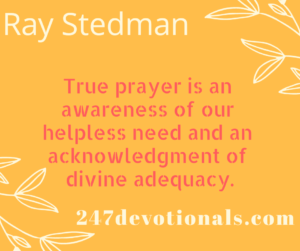Table of Contents
Topic:Dealing with the Discharges of Life
When a man is cleansed from his discharge, he is to count off seven days for his ceremonial cleansing; he must wash his clothes and bathe himself with fresh water, and he will be clean. On the eighth day he must take two doves or two young pigeons and come before the Lord to the entrance to the tent of meeting and give them to the priest.
Leviticus 15:13-14

The unavoidable diseases, afflictions, and discharges mentioned in this chapter are of a much less serious nature than the leprosy with which we have been dealing in previous chapters. You remember that when the leper was cleansed he had to go through a much more rigorous ceremony which included several offerings. But here the very simplest of the offerings is prescribed — two turtledoves or two young pigeons: one for a sin offering, one for a burnt offering — the cheapest, the most available of the offerings. Yet God never once sets aside the requirement for the blood of an innocent substitute to be shed in the place of one who is defiled for any reason whatsoever. By this means he underscores the great fact that human nature needs to be dealt with by blood. It is a deep and complicated problem. It cannot be solved by a mere rearrangement of surface symptoms. God is constantly underscoring that for us in these offerings.
So God has provided a way, a remedy. First, a person who is defiled shall bathe. Washing is always a picture of the action of the Word of God. The person’s defiling thought, his statement, his tone of voice, his attitude of heart, he shall take to the Word and see what the Word has to say about it. The washing of the Word is the beginning of cleansing.
And then he shall be unclean until the evening. Uncleanness is what we call being out of fellowship. It means to revert somehow for the moment from rest and dependence upon the Spirit of God to a momentary manifestation of the flesh, the old life, the old nature. There is a break in communion with the Spirit of God so that the flow of the life of Christ in the believer is temporarily arrested. Although Christ doesn’t forsake him for one moment, nevertheless, there is, for the moment, no enjoyment of his life. That is to be unclean, and it is to go on until evening.
The third element in the cleansing is the offering of blood. All through this book you find that God’s cleansing agents are always water and blood. The blood, of course, speaks of the death of Jesus on our behalf, which frees God to love us without any restraint whatsoever. But the water, again, represents the Word. It cleanses our conscience. You can say, Yes, God has forgiven me. But what many people do is to go on and not forgive themselves. They don’t allow their conscience to be cleansed. But when we read in the Word of God that he has washed away our sins and has forgiven us all unrighteousness — if we believe that Word then our own conscience is clear, and we are cleansed by the Word. Therefore there is no reason for me to be beating myself on the back about this sin any longer. God has cleansed me. I am not dirty nor defiled any longer. I am clean. That is the effect of the water.
Father, I do need the cleansing of your Word, the purifying of your blood. Thank you that it is available to me. I pray that I will be honest about these matters and will not let them go unattended. Help me to keep short accounts with you and to let your Holy Spirit cleanse away all the defilement of my life.
Life Application
What three stages are indicated for cleansing of the defilement of sin? What are the two essential prerequisites for exposing and addressing these issues?
